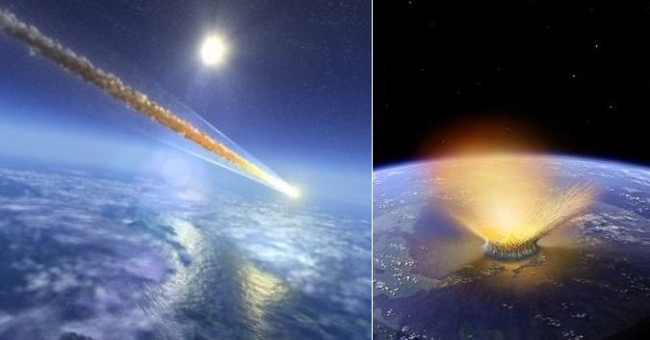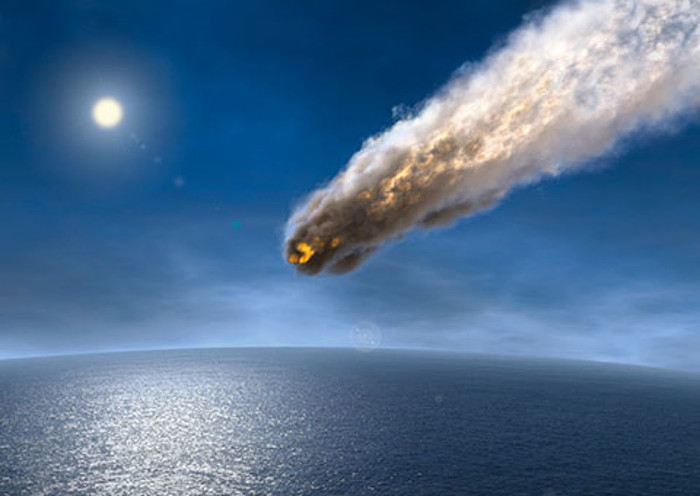What happens if meteorites fall into the ocean?
According to calculations by scientists, in 2036, a meteorite named Apophis with a diameter of 270m may fall into the Pacific Ocean. This meteorite had an effect of 26,000 times the atomic bomb that had been dropped on Hiroshima. So then, what will happen?
At the American Geophysical Union conference in San Francisco, scientists presented research and simulated models at the Los Alamos National Laboratory (USA) to provide an answer to this problem.

Since water occupies 70% of the earth's surface area, so when a meteorite falls, the probability of it "landing" on the ocean is entirely possible.
If a meteorite falls to the ground, it will create a big hole that can destroy a city, so what about in the ocean?
There will be two effects: the water volume in the impact area with shock waves emitted around. And the heat of meteorites due to friction with the atmosphere causes steam to evaporate.
We will explore each factor and consider their influence on the Earth.
First impact: The meteorite falls into the ocean, can create large, giant waves that can reach as high as kilometers.

If the collision occurs in a location far away from the shore or in the middle of a vast ocean, there is little chance that it will create a tsunami that has tremendous destructive power. Because shockwaves from the meteorite impact are relatively short, the volume of water splashed from the impact area will not spread too far, too wide.
But if the meteorite falls into the ocean within a radius of 10-20km of a crowded coast, the consequences will be extremely terrible: floods, shock waves in the air, horizontal storms of a storm and temperature dizzying.

Second effect: Due to friction with the atmosphere, when the meteorite falls into the ocean, its extremely high temperature will cause millions of tons of water to evaporate. In simulation experiments, the amount of water evaporates to 250 million tons. This amount of water vapor will penetrate the stratosphere and exist there for months, even years, causing the greenhouse effect, contributing to promoting global warming.
This is just an experiment for small-diameter asteroids, and if that really happens, the worst scenario can happen if it falls near the coast making us fearless: affect geological background, tsunami disaster.
Video simulating the meteorite scene falling into the ocean.
You should read it
- ★ How will a meteorite be found to crash into NASA Earth?
- ★ Meteors have the power to destroy 10 billion atomic bombs hitting the Earth at the 'super dangerous' angle, completely eliminating dinosaurs
- ★ New York engineers design high-rise buildings 'falling from the sky'
- ★ Stunned with iPhone Xs for nearly 70 billion VND made of meteors
- ★ What is the most devastating natural disaster that the earth has experienced?